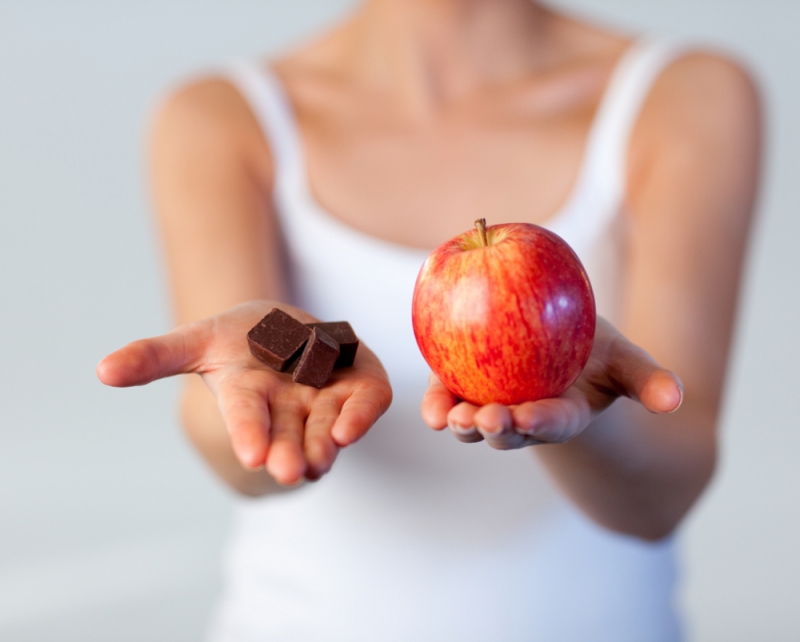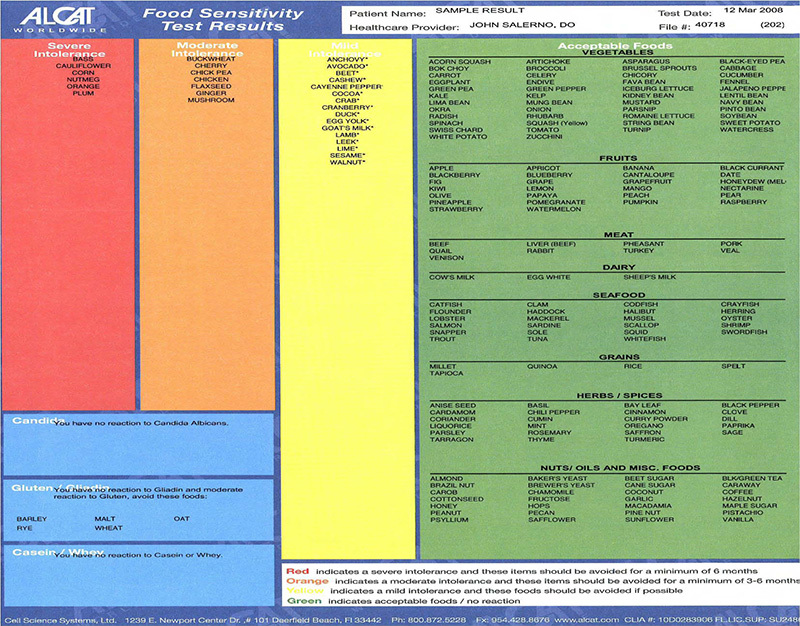We're Not Beyond Food Yet
/Have you ever heard of Soylent?
How about Ambronite?
Soylent and its competitor Ambronite are meal replacement beverages. Soylent is the most recognized product by far. Soylent shot to fame in 2014 after its founder/creator, software engineer Rob Rhinehart of Silicon Valley, decided to try to take "Diet Hacking" to the lab. He found that with his busy work schedule eating was an inconvenience and he wanted to formulate the "Perfect Meal" that could replace eating as we know it. This meal would contain "ultimate" nutrition and could be consumed in place of every meal.
Soylent became a crowd-funding darling, raising over $3 million, allowing Rhinehart to take his concept to the lab and into production. Since that campaign, Soylent has acquired over $20 million in its initial round of venture capital financing. Much has been written about Soylent over the past year and a bulk of the press has been negative, talking about the poor quality of it's ingredients and the ridiculousness of never eating real food again. And yet, Soylent is so popular that it cannot keep up with production. There was a 4 month backorder waiting period for new orders.
So what is the deal here? And why am I writing about this now?
I'm writing about this now because according to the LA Times, more pairs of tech savvy entrepreneurs are now hitting the lab in an attempt to hack our diets by creating a complete meal in a beaker. Which raises the question: are we ready for the end of food? Is this progress or a misguided movement? Meaning: this topic is as relevant as ever.
What is Soylent?
Let's take a step back and first get a little background on Soylent and how this company has come to be valued at $150 million this year, selling over 1 million of it's daily powder pouches and already becoming profitable.
Soylent is the brainchild of CEO Rob Rhinehart, a Silicon Valley software engineer. He was working very long hours and having serious money concerns as he and his small team of friends/business partners were attempting to get a startup off the ground. Trying to save money wherever he could, Rhinehart looked at his lifestyle and noticed that eating was one area that he could improve upon. Even while consisting on classic budget foods, such as ramen, his food costs were still substantial. He researched nutritional biochemistry and determined what he felt that current science had come to agree were the 35 essential nutrients for human survival. He then purchased these individual components on the internet and poured the powders and pills into a blender.
So how do I feel about this?
The idea of formulating the perfectly nutritious meal has been envisioned before. Science fiction has embraced the idea many times, even going so far as to imagine meals in pill form.
Ever since we've started identifying key nutrients in foods and their role in our bodies, someone looking to make a lot of money has set forth on a giant lab experiment that involves taking individual components of foods (certain vitamins, minerals and macronutrients) and trying to combine them into a meal of "Ultimate Nutrition" that is somehow still palatable. These "Ultimate" meals are usually formulated as powders or liquids.
My main problem with this idea exists in one MAJOR flaw that these ambitious entrepreneurs have overlooked:
We do not yet fully understand the complexities of our food and dietary habits.
We just don't.
Yes, food science and nutrition research has come a long way over the last several decades. We know a lot more than we used to.
We have names for many more micronutrients (vitamins and minerals) and understand a number of the chemical pathways that they are involved in. We also understand that certain diseases are caused by specific nutrient deficiencies and can treat accordingly. Nutritionists are able to do many wonderful things to help people improve their overall wellbeing and address specific health concerns. It's great.
We still don't know enough to ditch whole foods in favor of a synthetic lab concoction.
Better Together
We have identified some of the major components of specific foods, i.e. oranges have a lot of vitamin C. But oranges are much more than vitamin C. They have a number of additional micronutrients, as well as a general make up that is more complicated than we understand. It has been suggested that micronutrients in our food might actually work in tandem to be more biologically significant to us when consumed together as that food than those individual micronutrients act individually. In other words, the sum is much more than its parts.
Rhinehart, the mind behind Soylent, has been quoted in The New Yorker as saying, "You need amino acids and lipids, not milk itself. You need carbohydrates, not bread." He has falsely assumed that fruits and vegetables are not vital as themselves, but are merely inefficient vehicles of certain vitamins. He's wrong on this point. Whole foods are revealing themselves to be much more important than the few components that we've managed to identify. More research is definitely needed to help us understand what truly makes up the food we eat. We haven't fully learned exactly what our food is made of, nor understand the complexities of how our bodies respond to the delivery system (i.e. the whole food). For example, in the last decade we have discovered hundreds of components in our plant foods that we didn't know about previously. These newly discovered phytochemicals are so important as to now be household names, such as lycopene. Think how much more we are still missing.
Soylent, and many other similar products, derive their vitamins in a lab, avoiding whole foods altogether. Synthetic ingredients are often less bioavailable and sometimes even dangerous. Some examples: Soylent uses D2 (ergocalciferol) as its vitamin D source instead of D3 (cholecalciferol). Cholecalciferol is the superior form of vitamin D; when consumed, D3 is more effective at raising our blood vitamin D levels [1]. Soylent also uses the synthetic version of vitamin E. Synthetic vitamin E is dl-alpha tocopherol while the naturally derived form is d-alpha tocopherol. Note that the "dl" forms of any vitamin are synthetic. According to the National Institute of Health, the synthetic version of vitamin E is only half as active as the same amount of the natural form. But even more concerning is the fact that the synthetic form of vitamin E has now been linked to an INCREASED risk of cancer [2]. Supplementation of isolated vitamin A, also included in Soylent's ingredients as the synthetic Vitamin A Palmitate, has been associated with in an increase risk of all-cause mortality [3]. It would seem that our bodies have evolved to obtain complex nutrition in the form of whole foods.
With regard to the importance of food synergy and reinforcing the idea that we have more to learn: Studies have shown that consuming broccoli and tomatoes together has a better effect on tumor growth than eating broccoli or tomatoes alone, AND (and here is the extra kicker) better than consuming isolated cancer-fighting chemicals that we've already identified in those foods. There is more to tomatoes and broccoli than we know.
One Size Does Not Fit All
The idea behind "Ultimate" meals are that their given parameters apply to everyone (or at least nearly everyone). In reality, we all have varying dietary needs. Over simplifying and attempting to create one meal that is appropriate for everyone is a fool's errand.
There is not one perfect ratio of protein : fat : carbs that is best for all of us. We have different caloric needs. We each need more or less of various micronutrients based on our lifestyle and biology. Not to mention various allergies, sensitivities and tastes. The whole notion that it is possible to create one meal that is right for everyone is just wrong.
How We Eat
The ritual of eating a meal has been shown to be important as well. When we smell food our bodies start to prepare for incoming nourishment. Our mouth salivates, our gall bladder releases bile etc. Truly tasting our food, the act of chewing: these things have been shown to be linked to physiological responses in our bodies that help us digest and absorb our food. If we remove these steps by simply consuming all-in-one liquid food-stuffs, we will remove important cues. We may not even absorb all of that supposedly "perfect" nutrition.
There's also the importance of getting your body into parasympathetic mode before eating so that we can properly digest our food. (Parasympathetic mode refers to our parasympathetic nervous system, which is responsible for the colloquially named Rest & Digest mode, the opposite of Fight or Flight.) Most "Ultimate"-style meals are designed to be easily consumed on the go and as a solution to traditional time consuming eating. While we all sometimes need quick meals, perhaps encouraging eating full meals on the go is not great for our bodies. We shouldn't be running around while eating. Taking the time to stop and prepare your body for food is important.
Food as Culture
There's also the greater role of food in our lives.
Preparing meals as a family. Connecting with the Earth and where our food comes from. Cultural recipes and traditions around food. All of these are deeply important to our identity and daily lives. The whole notion of removing these key elements can have detrimental effects on our overall wellbeing.
Granted, many people do have strained schedules, and for them Soylent may offer up a reasonable option. After all, if you were going to choose a fast food drive-through, Soylent is probably a better choice. A better choice, yes. Still not a particularly great choice. If you are honestly looking for a way to eat healthy when money and time is short, there are real options. These options require looking at ways to hack our schedule. Not our diet. I promise you there are brilliant ways to incorporate meal planning that result in lots of good food being made without a lot of time or money. But yes, I can see Soylent being a decent option in a pinch.
Intention is Everything
Which brings me to this point.
I believe that when it comes to these meal-substitutes, how we use them in our lives is everything.
According to a Time article, Ambronite's creators hope that their product replaces things like protein bars, which are full of sugar and crappy ingredients, not regular meals. This is precisely the intention that I can get behind.
The stance of Soylent's creator Rob Rhinehart, who believes that eating is inefficient and is seeking to replace the traditional act of consuming food with lab concoctions, is not.
Sometimes we really do need something to grab and go and attempting to formulate a better one is great. Rhinehart's approach is that his little bottle is in fact sufficient to replace, and is superior to, all of the things that I have mentioned before. The complexities of our food, the manner in which we eat, the culture and community formed around eating: All of these he thinks are better replaced by a single bottle. That is the arrogance that I believe many other writers are responding to so strongly.
Marketing and intention do matter.
I would like to borrow the concept of "Upgrading" from my previous article, Superfood Confusion.
We should view these products as processed food upgrades.
If you were going to consume a processed food full of sugar and crappy ingredients, you would be better off consuming Soylent with its lower sugar and modest amount of nutritional content. It is not, however, a health food. Its ingredient list proves this point. Maltodextrin is an artificial sugar. Soy protein isolate is very controversial with its health risks being currently debated and researched. There's a lot of concern over contamination and additives during the chemical process that isolates the soy protein, as well as the high estrogen content in soy. As I mentioned before, all of it's vitamins are synthetic versions that are generally not the most bioavailable and have the potential to be dangerous.
If you want to upgrade Soylent: choose Ambronite.
Or any other food based "complete meal." They will have a lot more nutrition and a lot less crappy chemicals. While these meals will still be processed, they are at least starting with real food. For comparison, here are Ambronite's ingredients: organic oats, organic coconut, organic lucuma, organic chlorella, wild bilberry, wild sea-buckthorn, organic brown rice protein, organic stinging nettle, organic rice bran, nutritional yeast, organic spinach, organic spirulina, organic almond, organic flaxseed, organic apple, mineral salt, organic brazil nut, organic blackcurrant.
Still, Ambronite is a packaged powder and should not be a substitute for all food. It does not address the one-size-fits-all issue, how we eat, or food as culture. It does, however, offer up a rather good alternative to quick, processed options for when we would need something to fit that bill.
It is worth mentioning, though, that Ambronite is significantly more expensive than Soylent. Ambronite costs about $6 more per meal (albeit, Ambronite's meals are 500 kcal while Soylent's are 400 kcal.) And so while I would offer up Ambronite as the clearly better option for those who can afford it, the sheer price-point of Soylent has its merit.
Which now brings me to:
Global Impact
It should be mentioned that the idea of developing a "complete meal" powder has been floated as a way to improve global health by getting better nutrition to the malnourished all over the world. This is commendable. A non-perishable, cheap food source with some degree of nutritional value would be lifesaving for many people in the world. Soylent (or others) has the possibility of being a really wonderful thing for the world's malnourished. While it should not be thought of as a health food for those of us with access to quality whole foods, it could certainly help address world hunger. Personally, I think that should be its main pitch.
photo: source
1. Logan VF, Gray AR, Peddie MC, et al: Long-term vitamin D3 supplementation is more effective than vitamin D2 in maintaining serum 25-hydroxyvitamin D status over the winter months. Br J Nutr 2013, 109:1082-1088.
2.Klein EA, Thompson Jr. IM, Tangen CM, Crowley JJ, Lucia MS, Goodman PJ, et al. Vitamin E and the risk of prostate cancer: the Selenium and Vitamin E Cancer Prevention Trial (SELECT). JAMA 2011;306:1549-1556.
3.Bjelakovic G, Nikolova D, Gluud LL, et al: Antioxidant supplements for prevention of mortality in healthy participants and patients with various diseases. Cochrane Database Syst Rev 2008:CD007176.


















